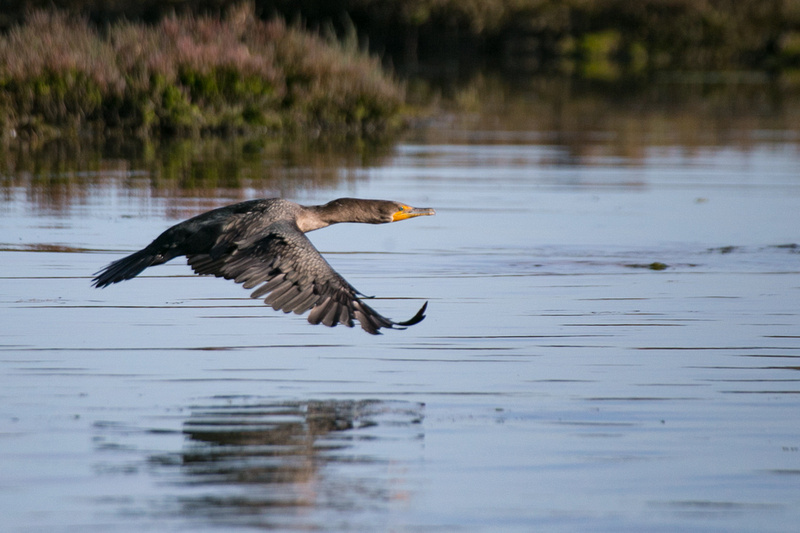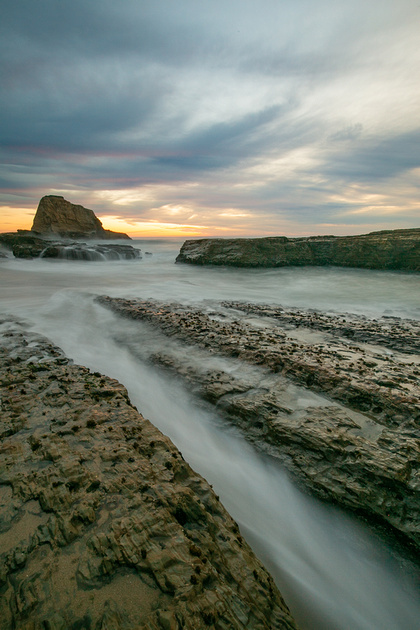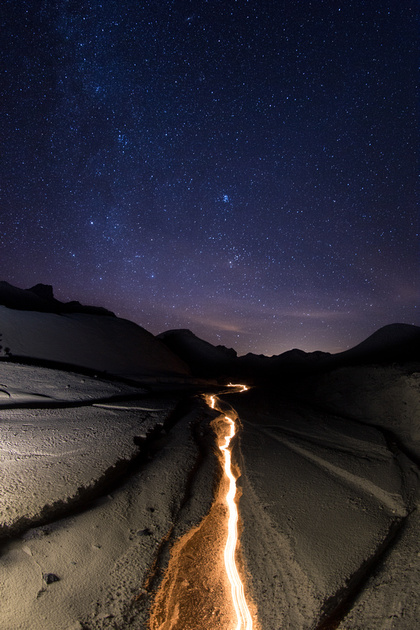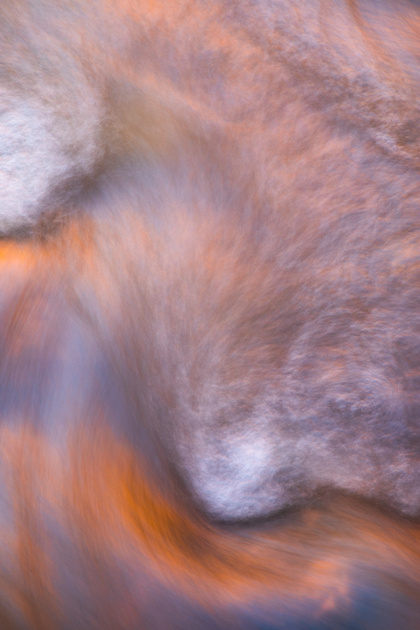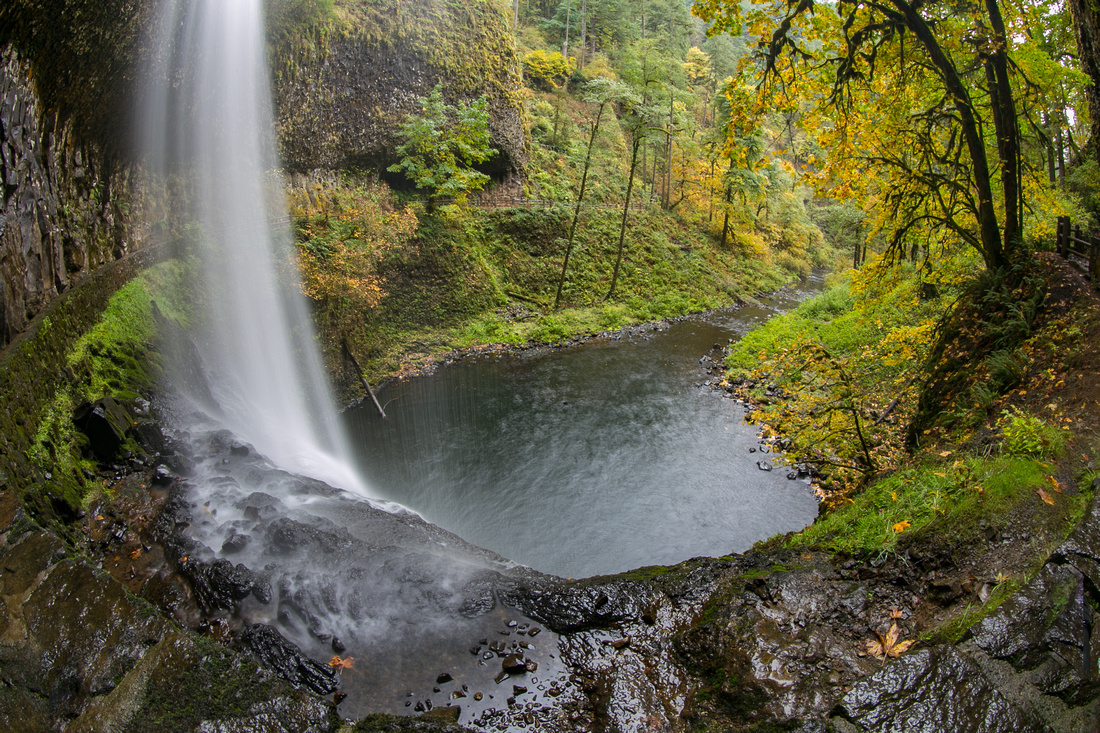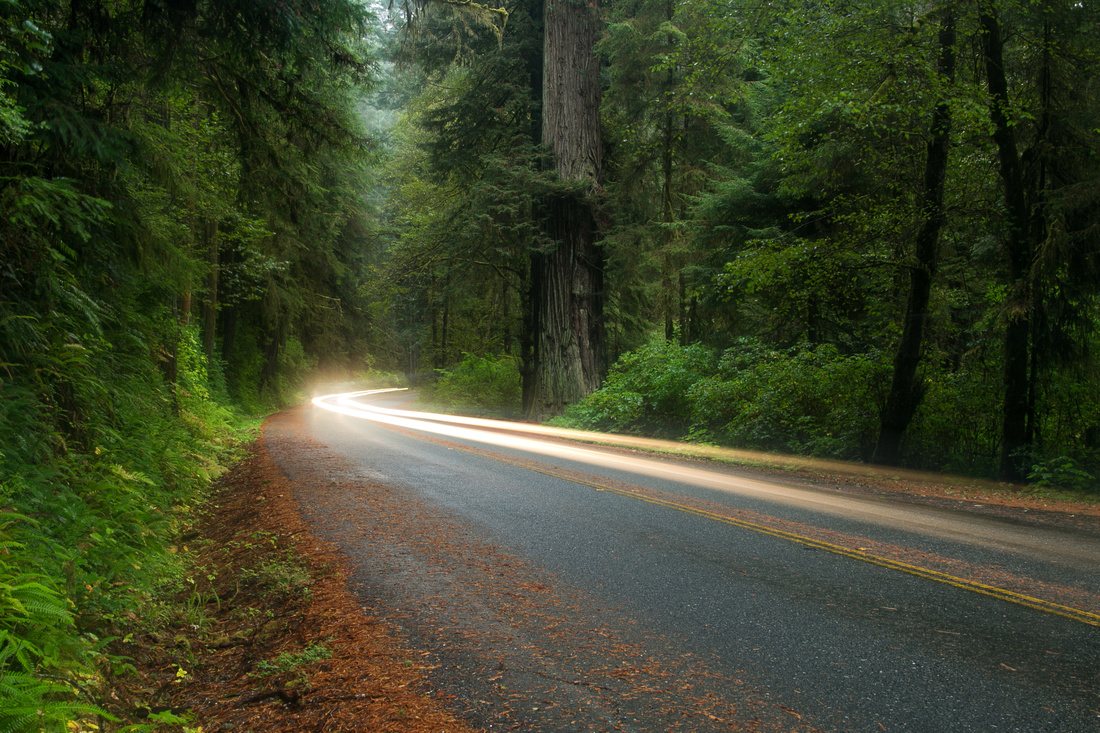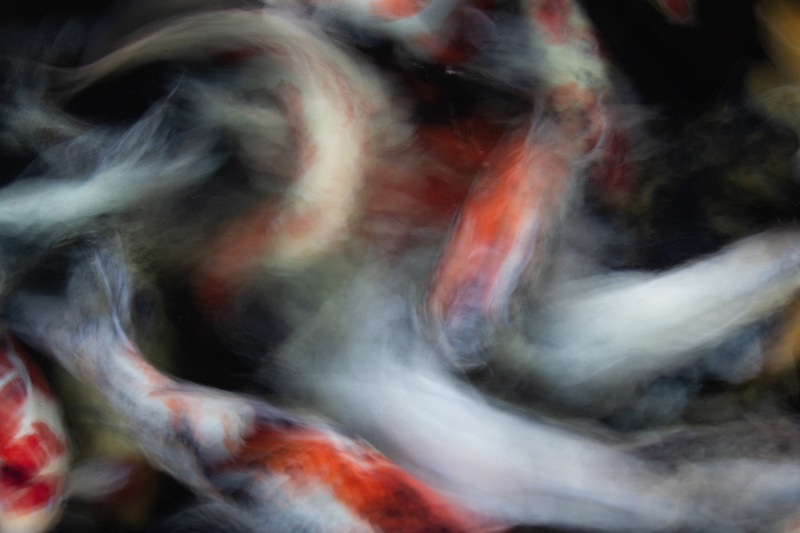Introduction to Shutter Speed
"S" is for Shutter Speed.
What is Shutter Speed?
Shutter speed is a measure of how long the shutter is open when you take a photograph. Before digital photography, shutter speed dictated how long the film was exposed to light. The longer (aka: slower) the shutter speed, more light hit the film, resulting in lighter images. In contrast, the shorter (aka: faster) the shutter speed, less light hit the film, resulting in darker images. Today, shutter speed refers to how long light is exposed to the sensor in your digital camera, but the same rules apply.
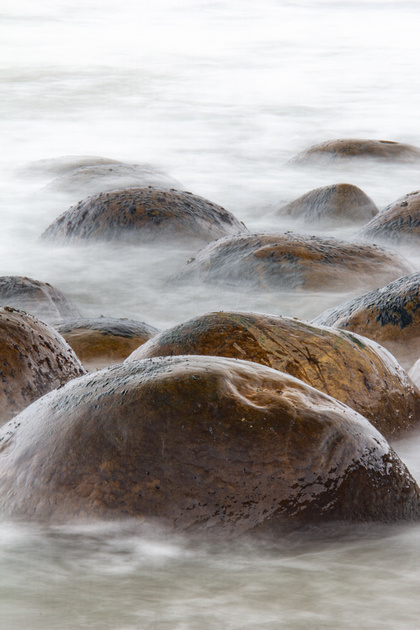 Bowling Ball Beachf40 @ 3.2 seconds, 100 ISO Bowling Ball Beachf40 @ 3.2 seconds, 100 ISOShot at 220 mm 
|
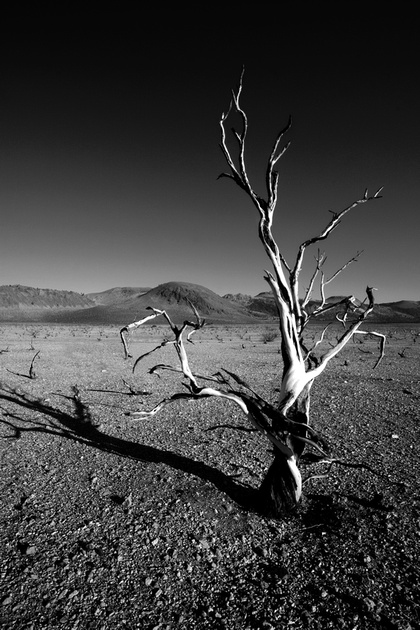 Dead treef22 @ 1/15th second, 100 ISO Dead treef22 @ 1/15th second, 100 ISOShot at 16 mm 
|
Shutter speed is measured in seconds, or fractions of seconds.
Hand held vs Tripod
Today's image stabilization technology allows you to hand hold your camera at longer and longer shutter speeds while still retaining good results, but the traditional rule was always to stick to a shutter speed not longer than the focal length of your lens.
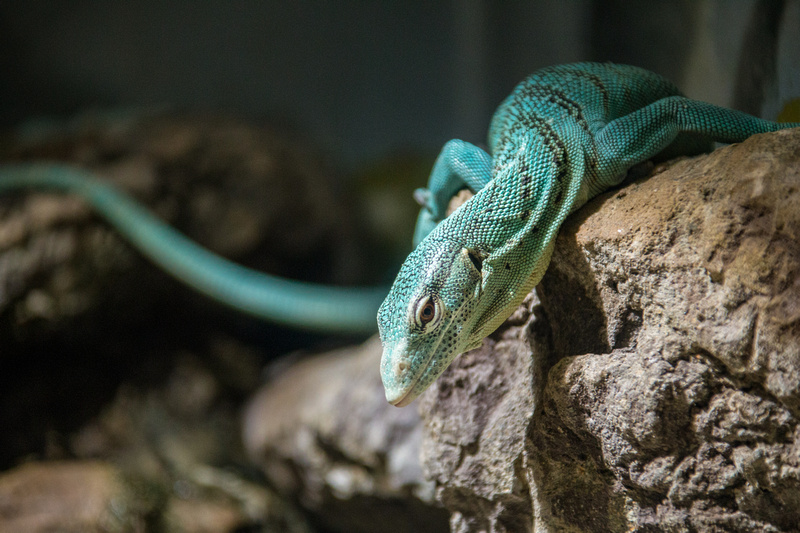 Green Tree Monitorf5.6 @ 1/500th second, ISO 3200
Green Tree Monitorf5.6 @ 1/500th second, ISO 3200
Shot at 300 mm
For example, if you are shooting an image with a 300 mm lens, you want to keep your shutter speed at less than 1/300th of a second. This Green Tree Monitor was shot with a 300 mm lens, at 1/500th of a second.
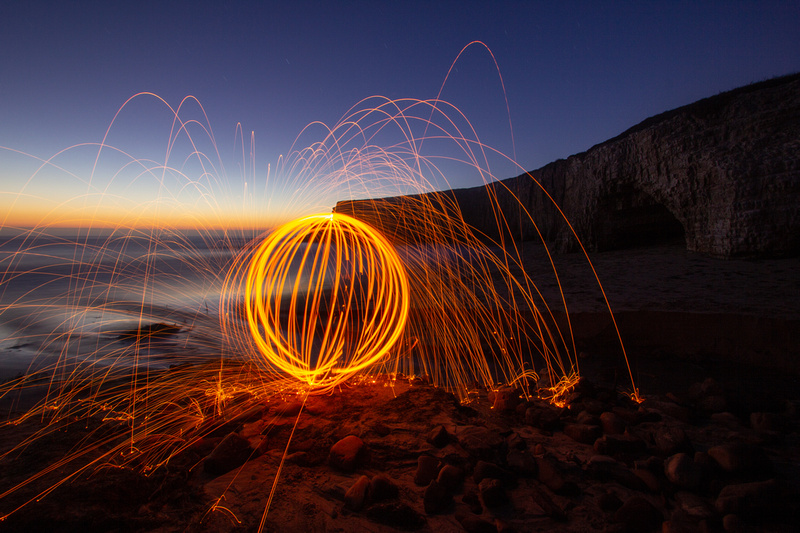 Fire Orb, Davenport Beachf11 @ 153 seconds, 100 ISO
Fire Orb, Davenport Beachf11 @ 153 seconds, 100 ISO
Shot at 16 mm
Anything slower than this, and you will want to use a tripod to prevent camera shake. This photo of a fire orb was taken using a tripod because the shutter speed was 153 seconds.
Composition
Shutter speed is a key factor in exposure and composition. Your camera's meter can help you determine the correct exposure but only you can determine what type of composition you are going for.
Do you want to freeze the motion of your subject? If yes, you want to use a fast shutter speed.
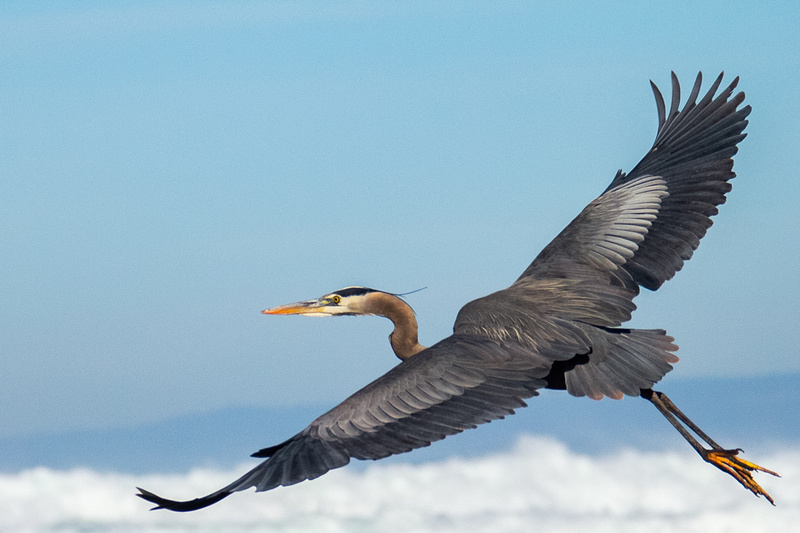 Great Blue Heron, Pebble Beachf7.1 @ 1/2500 second, 400 ISO
Great Blue Heron, Pebble Beachf7.1 @ 1/2500 second, 400 ISO
Shot at 190 mm
This Great Blue Heron was shot at 1/2500th of a second to ensure I could capture detail. There wasn't really anything else in this composition that was as important as the Heron, so that is where I placed the priority when determining what shutter speed to use.
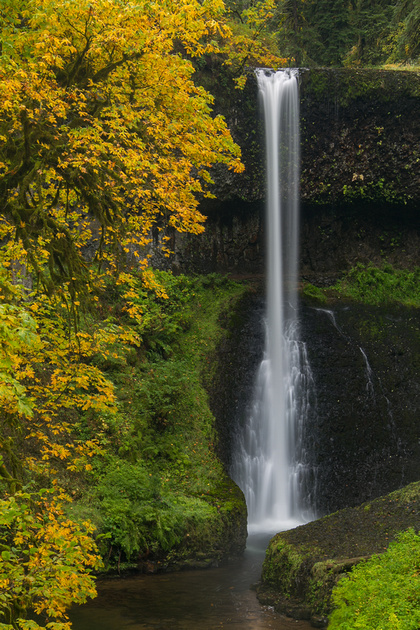 Middle North Falls, Silver Falls State Park, Oregonf13 @ 1.5 seconds, 50 ISO
Middle North Falls, Silver Falls State Park, Oregonf13 @ 1.5 seconds, 50 ISO
Shot at 100 mm
This waterfall was shot at 1.5 seconds to achieve a blurred effect. Since everything else around it was relatively still, those elements remained in sharp focus.
Best Shutter Speed
So what is the correct shutter speed to use? The depends entirely what you envision for the photograph. Here are some more examples of how shutter speed was used to create the desired outcome.
|
Cormorant shot at 1/4000th of a second to freeze it in flight |
|
|
Hole in the Wall Beach shot at 8 seconds to blur the waves |
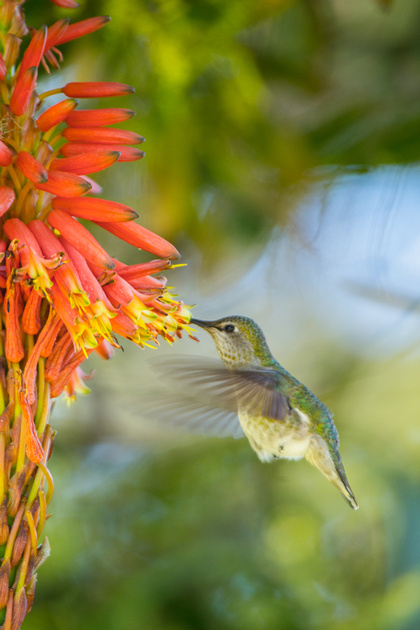 Hummingbird and Red Aloef5.6 @ 1/180th second, 400 ISO Hummingbird and Red Aloef5.6 @ 1/180th second, 400 ISOShot at 400 mm  Hummingbird shot at 1/180th of a second to freeze its face but show motion in its incredibly fast wings
Hummingbird shot at 1/180th of a second to freeze its face but show motion in its incredibly fast wings |
|
Light Painting in 20 Mule Team Canyon, shot at 30 seconds to freeze the stars but also capture the light painting in the foreground |
Canyon reflections in Sulphur creek, shot at 1 second to create a feathered effect. |
|
Lower South Falls shot at 2 seconds to achieve a blurred, misty effect |
|
|
Car lights in the Redwoods shot at 15 seconds to capture headlights from the back to the front of the frame |
|
|
Koi shot at 1.3 seconds to achieve an abstract, blurred effect |
|
I hope you enjoyed this post on shutter speed and how it impacts the end results. Stay tuned to see what "T" is for. I think you will like it!
